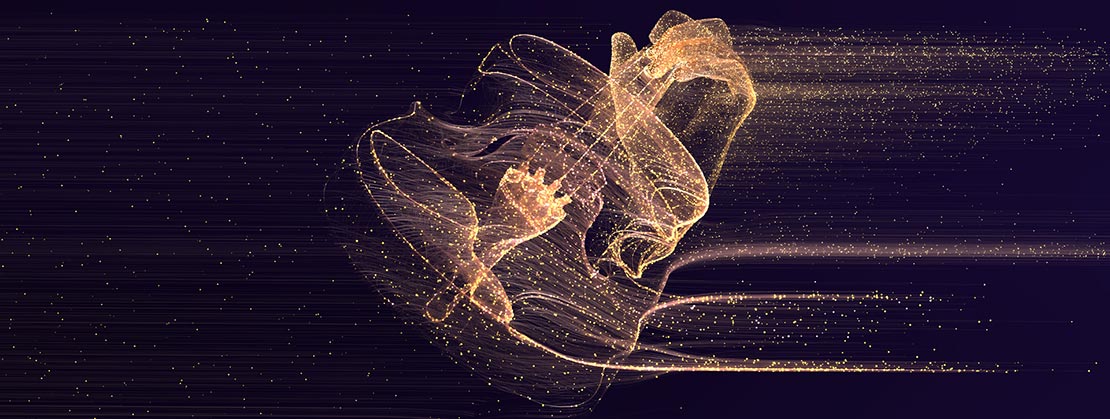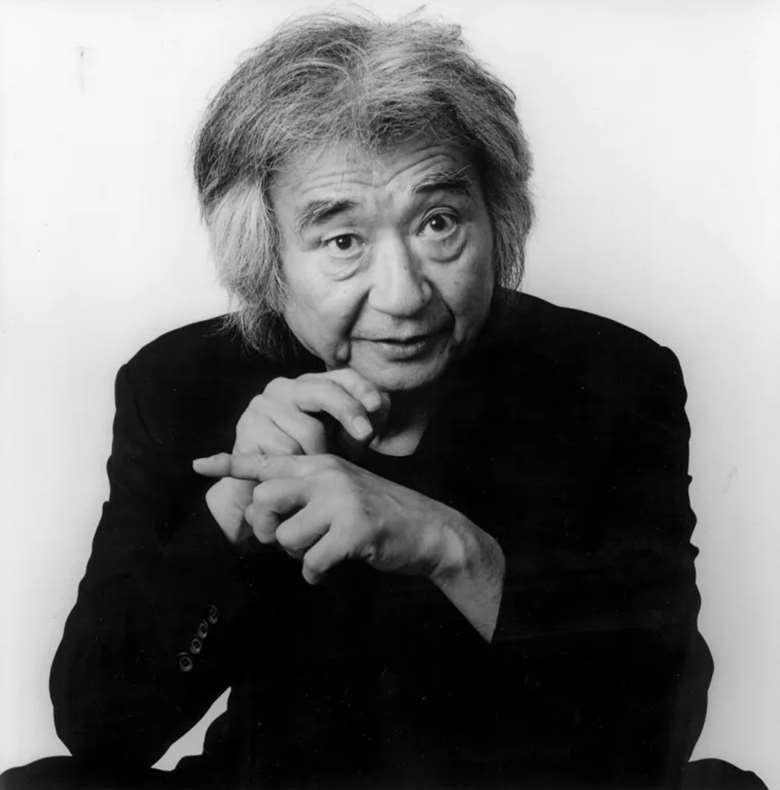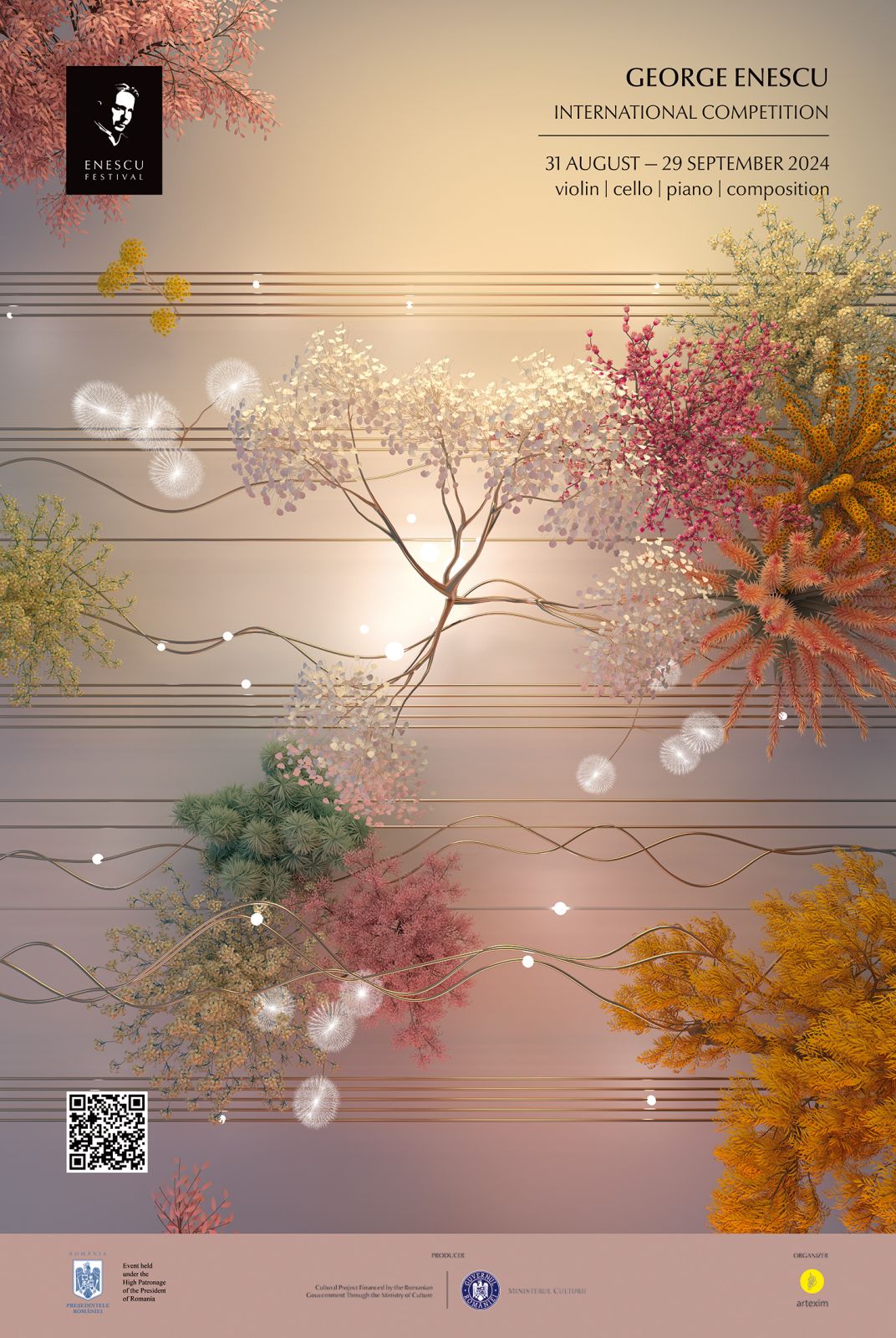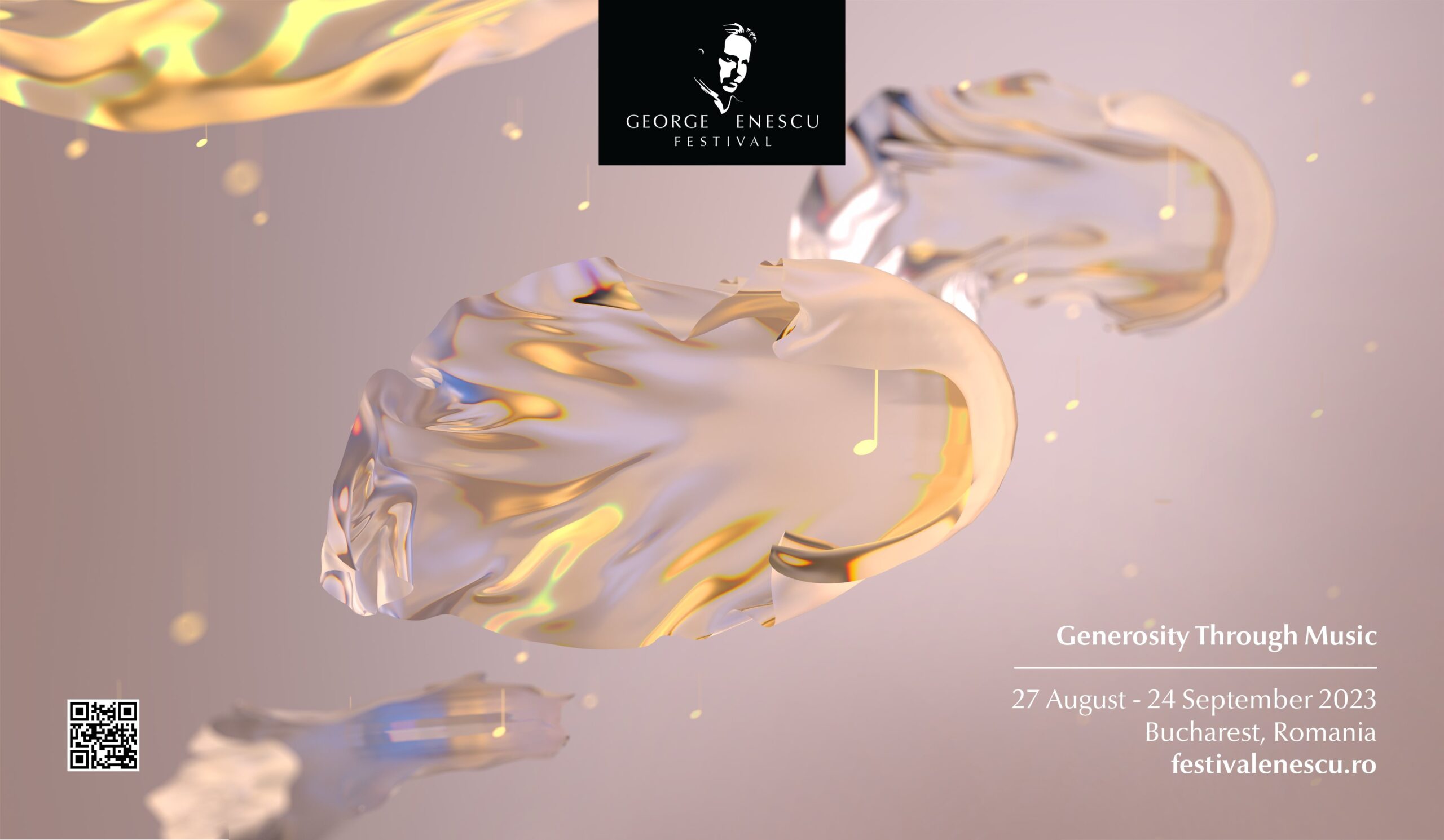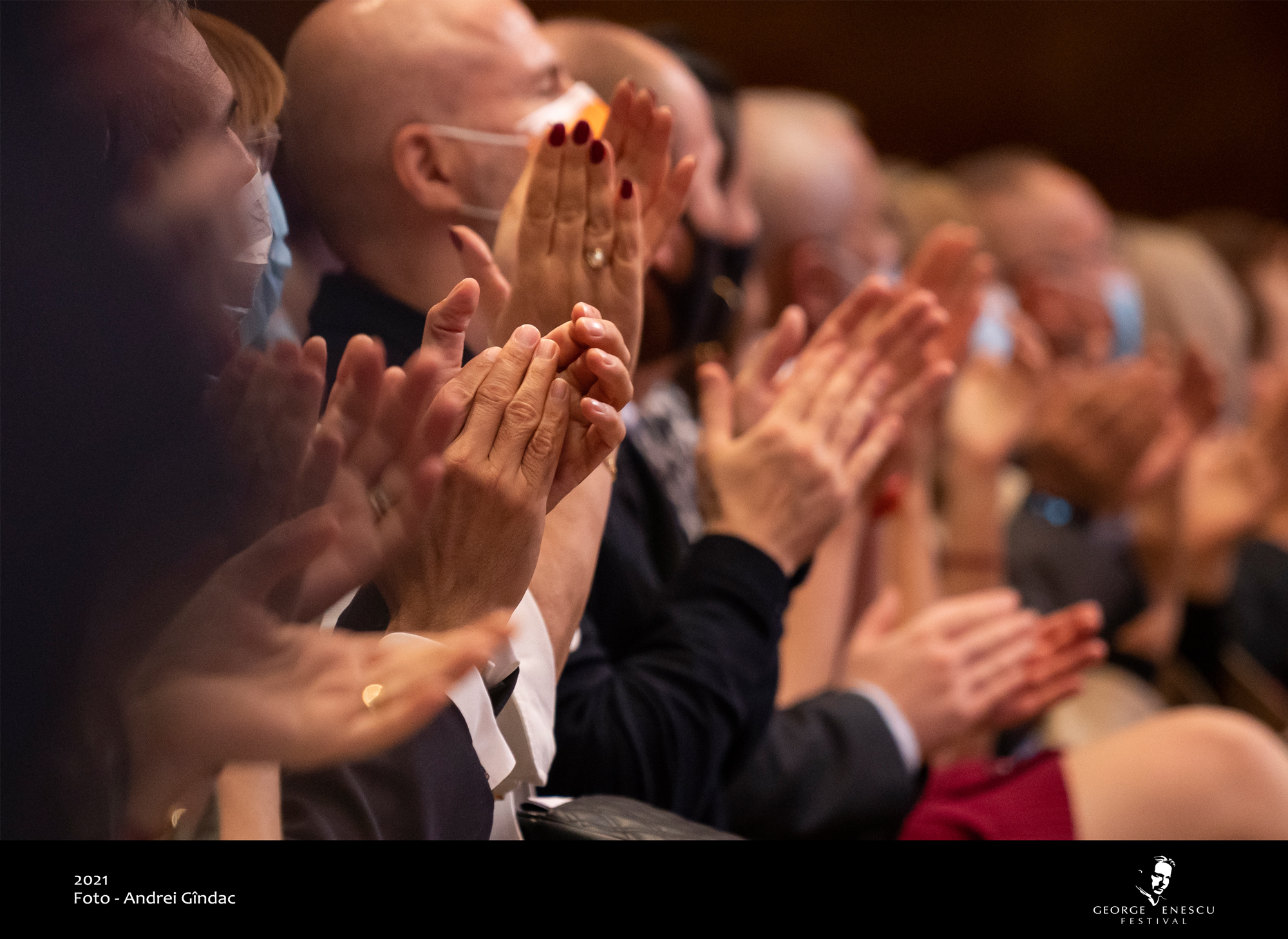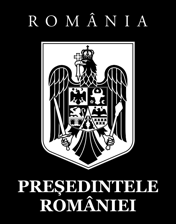Honoring its tradition of bringing the biggest names in world classical music to Bucharest and of keeping Romania anchored in the international cultural circuits, the 2021 Enescu Festival promises an unforgettable experience for both audiences and artists. From everything that makes this Festival special, we have selected below 25 memorable things about the 25th edition of the Enescu Festival – and for the rest, we invite the public to come to the concerts.
- The Enescu Festival takes place despite the pandemic, building on the achievement of 2020 when the organizers managed to save the Enescu Competition by reinventing it in a hybrid virtual & live format. The pandemic has complicated the organizational effort and caused several program changes. It is the Festival’s turn to kindly ask the public coming to the concert halls to observe the health rules in place. All foreign artists coming to the Festival are vaccinated and have a Digital Green Certificate.
- The Festival’s duration is the longest in its history – 4 weeks. Over 3,500 Romanian and foreign artists will perform at the Festival. The events take place in Bucharest and several cities across the country: Sibiu, Timisoara, Cluj-Napoca, Iasi, Pitesti, Ploiesti, Bacau, Ramnicu Valcea, Constanta, Satu Mare, Paulesti. In parallel with the four main Series of concerts, many musical institutions in Bucharest join the Festival with events included in the Creative Bucharest Series, such as George Enescu National Museum, National Museum of Cotroceni, Bucharest National Opera, Ion Dacian National Operetta, and Music-Hall Theatre.
- A record number of Enescu’s works presented in the Festival on the occasion of the 140th anniversary of the composer’s birth: 37.
- Enescu’s oratorio The Undead – a manuscript completed posthumously and given its world premiere in Berlin, in 2019, with the Radio Symphony Orchestra – will be heard for the first time at the Festival on September 23.
- All concerts in the George Enescu International Festival Program will be live-streamed free of charge on festivalenescu.ro and will remain online for 12 hours, to be available to all time zones. Each concert has its own event page, which can be reached from the Program page. In addition, a pop-up displays the streaming screen on the homepage of the website every day.
- French violinist Nicolas Dautricourt, already well known as a passionate ambassador of Enescu’s music, has prepared a special event dedicated to the anniversary of the great composer: The Enescu Project, taking place on September 25 at the Romanian Athenaeum.
- Enescu Festival brings for the first time to Romanian stages new reference works from the 20th Century, such as Zemlinsky’s Der Zwerg, Korngold’s Die tote Stadt, Berg’s Lulu.
- Several vocal-symphonic works presented at the Festival will be accompanied by multimedia projections by Carmen Lidia Vidu and Nona Ciobanu.
- The Enescu and His Contemporaries Series returns to the Festival Program and presents the chamber music universe of the 20th century’s first half through 8 events built around Enescu’s music, to be enjoyed by audiences at the Auditorium Hall of the National Art Museum of Romania.
- In the Music of the 21st Century Series a record number of world premieres will be presented, such as Exile – Concerto for cello, baritone, and orchestra by Jonathan Dove, a Symphony by Tim Benjamin, Der Nachbar des Chaos by Mihnea Brumariu, Concerto for violin, live electronics, and orchestra by Fred Popovici, and Obelisk by Adrian Iorgulescu.
- The International Composers’ Forum, led by Dan Dediu, a novel concept now at its third edition, brings composers face-to-face, challenges them to discuss and share their creative universe, and thus completes the triad of the musical phenomenon: creation – interpretation – perception.
- Renowned Argentine tenor, composer, and conductor José Cura has composed a Te Deum dedicated to the Jubilee Edition of the Enescu Festival, which he will conduct on September 5 at the Grand Palace Hall.
- The Fantasy for piano and orchestra, one of Enescu’s youth works, will also be performed for the first time at the Festival, by Saskia Georgini, a musician who in 2019 released a CD solely with works by Enescu.
- The 50th commemoration of Igor Stravinsky’s death in 2021 is marked by presenting several works composed by Stravinsky, in an original Enescu-Stravinsky dialogue.
- On September 1, the Berlin Radio Symphony Orchestra and conductor Vladimir Jurowski will present a Stravinsky-only concert.
- Stravinsky’s musical-theatrical work The Flood is performed for the first time in Romania. The narrator is none other than actor Robert Powell, famous for his role in Franco Zeffirelli’s film Jesus of Nazareth.
- Also on September 1, The Wedding by Stravinsky – another Romanian premiere – will bring four pianos onto the Grand Palace Hall stage, delivered from Vienna especially for this concert, by Bösendorfer.
- An Enescu-Stravinsky program will be presented at the Grand Palace Hall on August 29, with the London Symphony Orchestra under Sir Simon Rattle’s baton.
- The Festival welcomes several musicians at their first visit to Romania – Sonya Yoncheva, Sir Simon Keenlyside, Andrés Orozco-Estrada, Gil Shaham, Lahav Shani, Daniel Harding, the Baltic Sea Philharmonic, the Athens and Zagreb Philharmonic Orchestras, Alisa Weilerstein, Santtu-Matias Rouvali, Nemanja Radulovic, the London Mozart Players, Felix Klieser, Ramon Vargas, Avishai Cohen, Gabriela Montero.
- Several soloists whose concerts at previous editions of the Festival were sold-out events now return to the stage: Joshua Bell, Joyce DiDonato, Yuja Wang, Diana Damrau, Philippe Jaroussky, Jean-Yves Thibaudet, Maxim Vengerov, Valery Gergiev, Daniele Gatti, and many others.
- No fewer than 32 orchestras from 14 countries are taking part in this year’s edition. However, due to the pandemic, orchestras from the Americas and Israel, who were originally invited, declined to attend.
- The best-known Romanian music ensembles give concerts in the four main series of the Festival, with Music of the 21st Century being almost entirely dedicated to Romanian orchestras.
- The Royal Concertgebouw Orchestra of Amsterdam continues the tradition of closing the Festival on September 26, this time under the baton of a conductor also for the first time in Romania – Daniel Harding.
- Historically-informed performances, an increasingly prominent trend on the world classical music scene, are also present at the Festival, thanks to several renowned early music ensembles such as L’Arpeggiata, Orchestra Controcorrente, La Cetra Barockorchester Basel, Les Arts Florissants, Münchener Bach-Orchester, and Münchener Bach-Chor.
- Three great actors will step onto the George Enescu International Festival stage for the first time – Robert Powell, Maia Morgenstern, and Vlad Ivanov – with narrating roles in works by Igor Stravinsky, Arnold Schoenberg, and Edvard Grieg.
